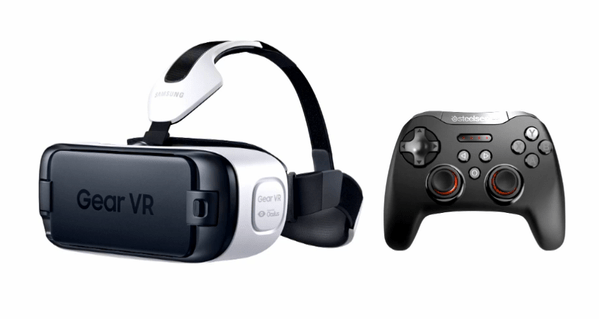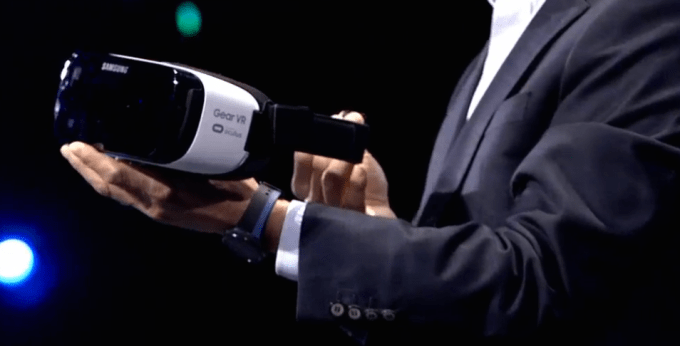
At half the price of its last mobile VR headset, the new $99 Oculus-made Samsung Gear VR is cheap enough to unlock virtual reality for the mainstream. Revealed today at the Oculus Connect conference, it works with the whole 2015 line of Samsung Smartphones including the Note 5, S6, S6 Edge, and S6 Edge+. It will ship in November in time for Black Friday. Compared to the $199 previous Gear VRs that only worked with fewer phones, this headset will be a lot more accessible.
The new Gear VR is 22% lighter, making it more comfortable to wear. The trackpad on the temple of the headset also now has a tactile directional pad on it so your finger will know where it’s touching. The previous Gear VRs had a smooth trackpad and sometimes it was to tough to know if you were touching it or just the unsensitive shell of the headset when you couldn’t see for yourself.
There’s also a new Gear VR Gamepad which all the Oculus Connect conference attendees will get for free. It features an Xbox-style dual-stick design.

While many are highly anticipating the flagship Oculus Rift headset release, the fact that it needs to be wired to an expensive gaming computer means it will have a much more niche audience. But the Gear VR and other mobile headsets like Google Cardboard that people can carry around with them and easily share with VR n00bs are what will bring the medium to the masses.


Comments
Post a Comment